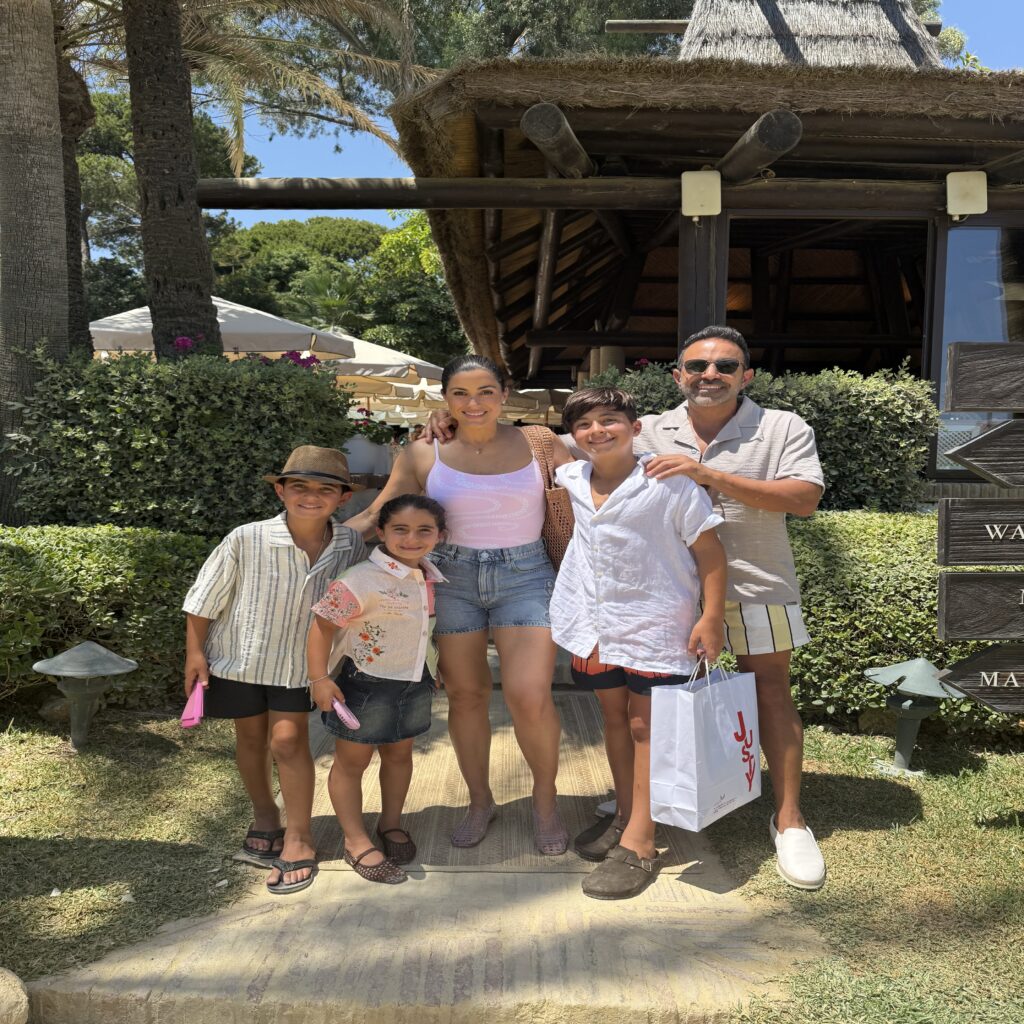Entrepreneur Lunar Loussia shares lessons on mentorship, leadership, and building lasting success in business and life

Lunar Loussia is an entrepreneur and business leader who has built a career on turning big ideas into real results. Raised in San Diego, California, he grew up watching his father run grocery and liquor stores while his mother cared for the family. “I loved going to work with my dad,” Loussia recalls. Those early experiences taught him about hard work and the importance of community.
After graduating from Valhalla High School in 1997, Loussia joined Wild Bills Tobacco in 1999. The company was founded by his cousin, Mazin Samona, who became both mentor and guide. “Mazin showed me that success takes courage and discipline,” he says. That foundation inspired Loussia to strike out on his own.
In 2007, he became an AT&T franchisee and built the company to 65 stores across three states. After selling the business in 2017, he launched Improve Business, which today serves 1,500 clients and employs 240 people. His interests also extend into custom home design and development, as well as manufacturing building materials in China.
Beyond business, Loussia is a dedicated father of three who enjoys golf, especially junior golf with his kids. He is deeply involved in philanthropy, supporting more than 20 nonprofits and community organizations. “Helping others keeps you grounded,” he says.
Loussia’s life and career reflect his belief in discipline, mentorship, and giving back. “Big ideas matter,” he explains, “but only if you’re willing to put in the work to bring them to life.”
A Conversation with Lunar Loussia on Success
Q: When you think about success, what does it mean to you?
A: For me, success has never been just about money. It’s about impact. Growing up, I watched my dad run his stores in San Diego. He knew every customer’s name. That stuck with me. Success is when people trust you, when they know you’re consistent, and when you’ve built something that outlasts you.
Q: What role did mentorship play in your journey?
A: Mentorship was everything. In 1999, I worked at Wild Bills Tobacco, which my cousin Mazin founded. He took me under his wing. He taught me to take risks but also to stay grounded. I think too many people try to go it alone. I always tell young entrepreneurs, “Find a mentor and listen.” It doesn’t matter if you’re sweeping floors or managing stores—what you learn from a good mentor can change your life.
Q: You built an AT&T franchise into 65 stores. What lessons came from that experience?
A: Expansion teaches you discipline. At one point, I had stores across three states. The challenge wasn’t selling phones—it was building teams. You can’t be in every store every day. You have to empower people. I focused on giving employees a sense of ownership. When they felt invested, the business thrived. That’s a lesson I carried forward into Improve Business.
Q: Can you share a time when failure shaped your definition of success?
A: Absolutely. Early on, I made the mistake of hiring too fast during a growth phase. We grew numbers, but culture slipped. I had to step back, rebuild, and refocus on people first. That setback reinforced something my dad always said: “Slow is smooth, smooth is fast.” Success isn’t about racing—it’s about building steady foundations.
Q: You’re now leading Improve Business with 1,500 clients and 240 employees. What makes you proudest?
A: Honestly, it’s not the numbers. It’s seeing employees grow into leaders. Some of the people who started with me in entry-level roles are now running major divisions. That gives me more satisfaction than opening another office. It proves that investing in people pays off.
Q: How do you balance success in business with family life?
A: Golf with my three kids is one of the ways. I love junior golf programs because they teach patience and discipline. I also try to bring my kids into my world. Just like I loved going to work with my dad, I want them to see firsthand what hard work looks like. Balance doesn’t mean perfect schedules—it means sharing the journey with your family.
Q: You’ve also been very active in philanthropy. Why is giving back part of your definition of success?
A: Because it keeps you grounded. I support over 20 nonprofits—Friends of Scott, RIP Medical Debt, Sharia’s Closet, St. Peter’s Church, and many more. I do it because business without community is empty. Helping others reminds me why we work so hard in the first place. Success means you have the resources and responsibility to lift others up.
Q: What advice would you give to someone chasing their own version of success?
A: Three things. First, don’t skip the hard work. Everyone wants shortcuts, but it doesn’t work that way. Second, find a mentor and stick close. Third, accept failure as part of the process. Every setback I’ve had—from missteps in hiring to tough markets—has taught me something valuable. Big ideas are important, but they mean nothing without execution and persistence.
Q: Looking ahead, how do you want your legacy defined?
A: I want people to say I built teams, not just businesses. That I invested in my family, my community, and my employees. My hope is that others can look at my journey and see that success isn’t about being the loudest or the flashiest. It’s about discipline, consistency, and using what you build to help others.
